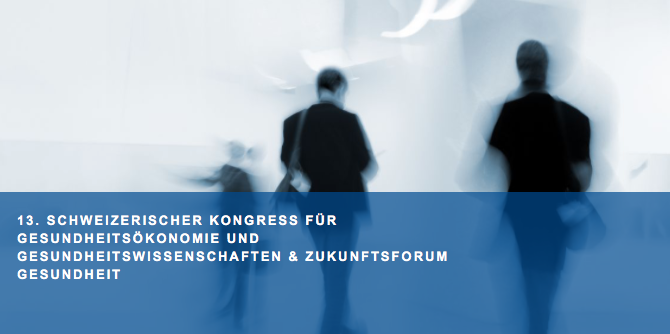The FORGOOD mnemonic was designed to provide a checklist of ethical considerations for behavioural science practitioners in the public sector. In this post, recent MSc Behavioural Science students Annabel Gillard and Bishin Ho propose an adaptation of the FORGOOD framework for the private sector.
Behavioural science builds on insights from psychology and economics, as well as developments from a wide range of adjacent fields including neuroscience, data science and biology. Popularised by Thaler and Sunstein’s 2008 blockbuster, ‘Nudge – Improving Decisions about Health, Wealth and Happiness’, the field has inspired a growing number of public policy units worldwide which aim to improve outcomes for individuals through the use of behavioural science informed interventions (OECD, 2022).
As anyone who has spent any time online could attest to, the private sector is also no stranger to the use of behavioural science informed interventions. From complex subscription cancellation processes to addictive social media algorithms, ‘nudges’ are woven into the fabric of modern-day digital product design. Research also demonstrates that behavioural science has the power to improve customer experiences and satisfaction, conferring a competitive advantage to companies capable of harnessing it effectively (Raigopal et al., 2000; Pei et al., 2020)
Yet, while the public sector has benefitted from the development of ‘FORGOOD’ – a practical framework and mnemonic to guide ethical intervention design (Lades & Delaney, 2020) – there is currently no comparable ethics framework for how corporate interventions should be developed and evaluated. Given the strong and growing demand for corporate accountability (Diez – Busto 2021; Global Reporting Initiative 2022), this lack of ethical guidance poses potentially significant financial and reputational risks for corporations who leverage behavioural science today. Furthermore, the misuse of behavioural science can also have wide-reaching consequences for the credibility of the entire nascent profession.
The ‘FORGOOD’ framework
‘FORGOOD’ has improved the robustness, accountability and scalability of intervention design in the public sector, however, an alternate approach is required for corporations given their complex stakeholder landscape. While public sector behavioural interventions aim to benefit the wider public, corporations have a duty to protect their shareholder’s financial interests. This can lead to ethical complexity where the stakeholder targeted by an intervention is not a beneficiary of its success. To this end, we propose an adaptation of the ‘FORGOOD’ framework that accounts for the operating realities of private sector firms but also reflects on established business ethics frameworks regarding the management of conflicting stakeholder interests.
Below we have indicated how the ‘FORGOOD’ questions can be adapted to reflect the commercial environment, however, this should be seen as just the beginning. Our white paper additionally sets out a proposed ‘gold standard’ that companies wishing to show ethical leadership could aspire to.
‘FORGOOD’ starter questions adapted for the private sector
- Fairness: Does the behavioural intervention treat its target fairly? Does it attempt to fairly manage conflicts of interest between targets, beneficiaries and other relevant stakeholders?
- Openness: Is the behavioural intervention disclosed or evident to the target?
- Respect: Does the behavioural intervention respect the target’s autonomy, dignity, freedom of choice and privacy within the context of their relationship with the corporation?
- Goals: Does the behavioural intervention seek to improve outcomes for targets, beneficiaries and/or other relevant stakeholders of the company?
- Opinions: Does the behavioural intervention pass the ‘front page test’ of public opinion?
- Options: How does the financial and non-financial cost/benefit assessment compare to other options?
- Delegation: Does the company have the regulatory right and ability to implement the behavioural intervention?
Aiming for a Gold Standard in an environment of changing technology
An example of how these considerations can be extended to a ‘gold standard’ would be the active guidance for the ‘Options’ part of the framework: to see direct and indirect financial and non-financial harms being explicitly assessed at a senior level within the company and documented. Although such recommendations may appear aspirational, it is important for behavioural science to keep step with societal expectations. We see the use of blockchain technology in Web 3.0 as one possible development that will put further pressure on improved data protection by handing power to consumers. Adopting an ethical framework may also pre-empt the need for explicit regulation by guiding behaviour in advance and in new contexts. Behavioural science will likely be caught indirectly by the planned EU AI Act, particularly given the ability of technology to vastly magnify the impact of any interventions as well as the speed and scale of their reach – a concept described as ‘hypernudging’ (Yamazaki, 2020).
The commercial benefits
Integrating a ‘FORGOOD’ framework in corporate applications of behavioural science would likely require additional time and financial resources. However, we hope that the initiative pays for itself in a commercially competitive environment, and that choosing to put customers’ interests above short-term profit will build customer loyalty. The issues of adoption and oversight are also integral to the success of implementing the framework and call for further research and analysis.
We welcome feedback from the behavioural science community regarding this proposed adaptation of ‘FORGOOD’ for the private sector. Please share your thoughts with us – in the spirit of ethical and inclusive rigour we invite open discussion and real-world case studies to advance the development of robust but realistic and practical professional standards.
- Learn more about the authors’ work in their White Paper ‘Businesses FORGOOD: Developing a Framework for Ethical Behavioural Science in Corporations’
- The opinions in this post are of the authors, not of the Department of Psychological and Behavioural Science or LSE
- All images licence-free from Canva
References
Diez-Busto, E., Sanchez-Ruiz, L., & Fernandez-Laviada, A. (2021). The b corp movement: A systematic literature review. In Sustainability (Switzerland) (Vol. 13, Issue 5, pp. 1–17). MDPI AG. https://doi.org/10.3390/su13052508
Global Reporting Initiative. (2022). GRI 1: Foundation 2021.
Lades, L. K., & Delaney, L. (2020). Nudge FORGOOD. Behavioural Public Policy, 1–20. https://doi.org/10.1017/bpp.2019.53
OECD. (2022). Behavioural insights. https://www.oecd.org/gov/regulatory-policy/behavioural-insights.htm
Pei, X.-L., Guo, J.-N., Wu, T.-J., Zhou, W.-X., & Yeh, S.-P. (2020). Does the Effect of Customer Experience on Customer Satisfaction Create a Sustainable Competitive Advantage? A Comparative Study of Different Shopping Situations. Sustainability, 12(18), 7436. https://doi.org/10.3390/su12187436
Rajgopal, S., Venkatachalam, M., & Kotha, S. (2000, December 20). Does the Quality of Online Customer Experience Create a Sustainable Competitive Advantage for E-Commerce Firms? Papers.ssrn.com. https://papers.ssrn.com/sol3/papers.cfm?abstract_id=242774
Thaler, R., & Sunstein, C. R. (2008). Nudge: improving decisions about health, wealth and happiness. Penguin.
Yamazaki, Y. (2020). An Empirical Study for The Acceptance of Original Nudges and Hypernudges. In Societal Challenges in the Smart Society (pp. 323-336). Universidad de La Rioja.




